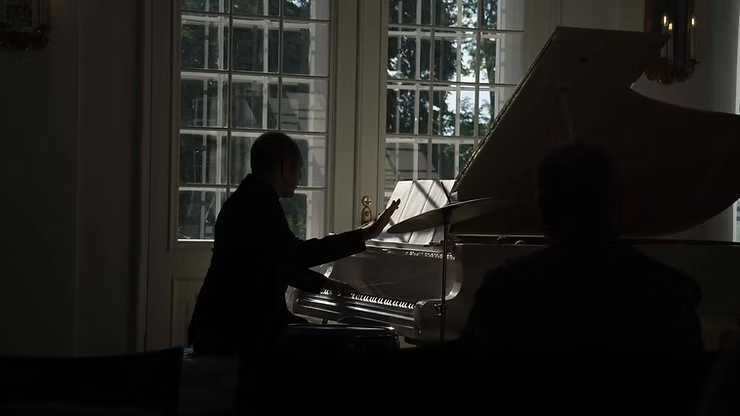The Amazing Mozart Effect is a term coined by Dr. Frances Rauscher and her team of researchers at the University of California, Irvine. They found that listening to classical music, especially Mozart’s music, can boost a person’s brain power and make them more creative.

People who listen to classical music in the morning are often more productive and focused at work. They also tend to be more empathetic toward others.
This article will explore how Mozart’s music can be used to enhance creativity, intelligence, and cognitive abilities in adults.
What is the Mozart effect?
The Mozart effect is a phenomenon where listening to Mozart’s music can have a positive impact on the listener’s IQ.
A study by Rauscher, Shaw, and Ky (1993) showed that when people listened to 10 minutes of Mozart’s music before taking an IQ test, they scored better than those who listened to silence or pop music. This study was replicated in the following years with similar results.
The Mozart effect is not just limited to listening to his music. A study by Karlsson and Forssén (2007) found that participants who had played Mozart for 30 minutes were more creative in a word association test than those who had not.
What is the neuroscience behind the Mozart effect?
The Mozart Effect is a phenomenon in which listening to classical music can temporarily cause an increase in brain activity.
The Mozart Effect was first discovered in 1993 when a study showed that college students who listened to ten minutes of Mozart’s sonata for two days had an improved spatial reasoning score.
This phenomenon has been researched for many years and has been found that classical music can help with spatial reasoning, reading comprehension, math skills, and language skills.
The Mozart effect is based on the theory that the left and right hemispheres of the brain are synchronized by listening to classical music. It is a phenomenon in which playing classical music to an infant or toddler can help their intelligence, creativity, and academic success.
This phenomenon was first observed by Dr. Alfred A. Tomatis in the 1980s when he was researching how listening to music could help those who had hearing problems and found that it might also affect the development of children’s brains.
Mozart’s music helps the brain organize and calm. It can be used to help those that have ADHD or anxiety, for example.
The Mozart Effect is not just an old wives’ tale, it has been studied extensively by scientists and they have found that there are many benefits of listening to classical music. In one study, they found that people who listened to classical music showed better results on spatial reasoning tests than those who listened to no music at all.
Studies show that listening to classical music can improve our mental abilities and make us more creative.
Some studies show that listening to classical music can improve our mental abilities and make us more creative. The Mozart effect is a well-known example of this. There are many other studies that show how music can reduce stress or improve our moods, but it’s important to note that not all types of music will have the same effect on everyone.
In the early 1990s, a study found that college students who listened to 10 minutes of Mozart’s sonata for two pianos (K448) showed improved spatial IQ scores compared to those who did not listen to music. This led researchers to believe that listening to classical music can improve mental abilities and make us more creative.
Is it just Mozart?
No. Classical music is a broad term that encompasses many different styles, composers, and instruments. The idea of music that can help boost your mind is often associated with Mozart, but he was not the only composer to write great and complex pieces.
A variety of composers have written in the classical style including Haydn, Vivaldi, Albinoni, and Beethoven.
Classical music can be harsh or soothing depending on the composer, what instrument is being played, and how it has been arranged for performance.
But in the end, the complexity that it inherits from the rhythmical and harmonic views and its way of using the melody makes it a great booster for the brain. listening to classical music for the brain, on many levels is like a workout. even if you are not aware of it, your brain starts to recognize the patterns and tries to analyze the harmonic layers in the piece.
So we must be aware that it is not only Mozart whose music is a blessing for our brain, but many other composers have pieces that can have the same effect on us. let alone there are pieces from other genres besides classical music that can act as a booster for our brains.
Does it work for everyone?
The term “Mozart Effect” was first used in 1993 by Alfred A. Tomatis, a French ear, nose, and throat specialist and founder of the Center for Research and Restoration of hearing in Paris. He had been conducting research on the effects of music therapy on various physical or psychological disorders since the late 1950s. His research led him to conclude that listening to Mozart’s music could help improve cognitive functions such as intelligence, creativity, spatial reasoning skills, and memory retention.
In 1993 he published “The Power of Music”, which described his theories about why people feel better when they listen to Mozart’s music. He believed that listening to this type of classical music improved brain function by increasing blood flow through the brain and stimulating nerve cells in specific areas related to IQ scores,
Long story short, yes, it works on everyone!
Conclusion
Mozart is often credited with enhancing creativity and intelligence. This is because of his ability to tap into the creative, emotional, and intellectual centers of the brain.
Classical music is not only a form of entertainment but also an actual mental exercise that has been shown to have profound benefits on our brains. I would recommend you try listening to some classical tunes today and experience first-hand just how much they can help you feel more creative and sharp-minded!
But bear in mind, that the effect of such things as classical music, does not happen in one day, you need to make it a habit to see its effect in a long term.







